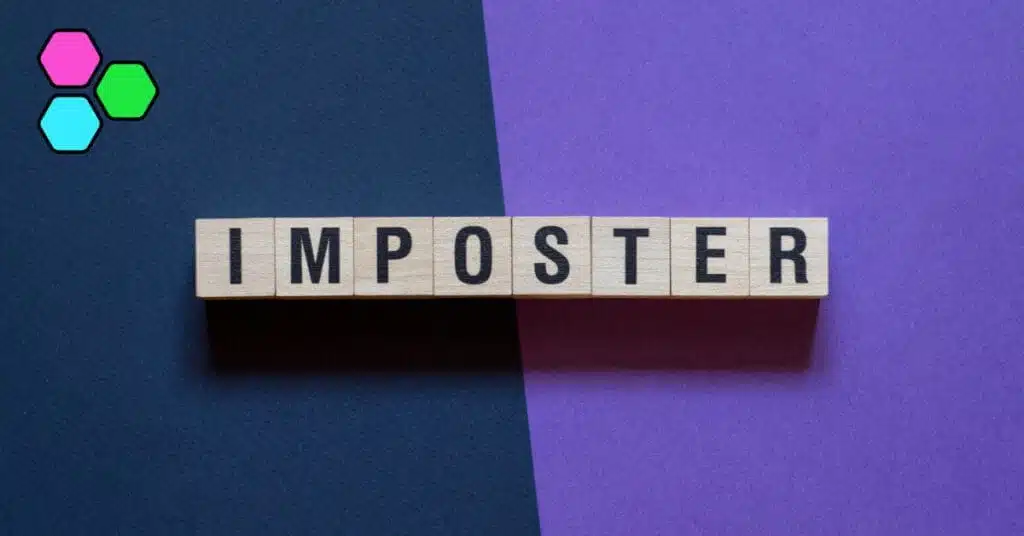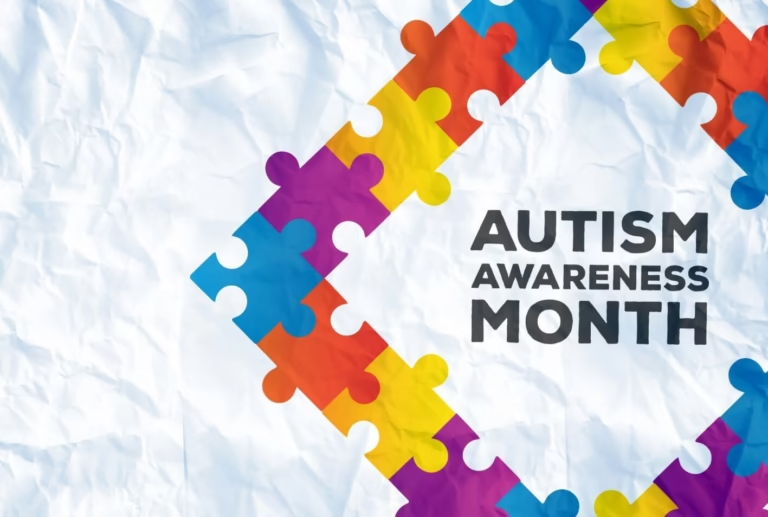If you’re a fellow autistic professional then the chances are you’re familiar with the nagging sense of self-doubt that creeps in when you least expect it. This is autism imposter syndrome.
You’ve probably been sat there in a meeting where you’ve received some pleasant feedback, but instead of accepting it with good grace, you’re sitting there terrified that one day they’ll figure out you’re a fraud.
Maybe you’ve been recently promoted but you hear that inner voice in your head telling you that you didn’t really deserve it, oh no, you didn’t earn it, you just got lucky and were in the right place at the right time.
When I first moved up to management, I was constantly panicking about dropping the ball on something important and not living up to the expectations of those around me, especially those who had taken a chance on promoting me.
I was completely outside of my comfort zone and utterly convinced it was only a matter of time before I’d be found out and sent packing back to where I came from.
I’ve come to realize that these are really common feelings for autistic people, which I guess isn’t that surprising when you think about how we’re constantly being told by society that we’re deficient in certain areas.
Almost inevitably, this results in a combination of self doubt and a feeling that you don’t really own your success.
The good news is that you’re not alone in feeling like this, most of us do at some point, and you don’t have to let it define you or limit your career.
In this article we’re going to explore autism imposter syndrome, what I believe causes it, and what you can do to overcome it.
If you’re autistic and you’ve been struggling with imposter syndrome at work or you just want to learn more in case you ever do in the future, then keep reading, and by the end of the article you’ll know exactly how to move forward with a great deal more confidence and a lot less self doubt.

What Is Autism Imposter Syndrome?
Basically, imposter syndrome is the psychological term for when people doubt their own achievements.
They feel a persistent fear of being exposed as a fraud, even though from an objective point of view, evidence of their competence is plain for all to see.
Here is a study on the origins of imposter syndrome by Dr Pauline Clance and Dr Suzanne Imes, who first coined the term.
Pairing imposter syndrome with autism is like putting gasoline to a fire.
It becomes a lot more complex and layered as it becomes intertwined with the extra hurdles autistic people face around social communication, self-expression and sensory difficulties.
The root of autism imposter syndrome lies in the gap between what you experience internally (the world according to you and I) and what you know the external expectations and cultural norms are to be within your workplace.
Many of us feel that we have to mask our natural behaviors and our preferred way of existing in order to be accepted in work environments that generally can’t or won’t accommodate our neurodivergent traits.
This is where the self doubt kicks in and you begin hearing that little voice in your head telling you “You’re not good enough to be here”. (yes, you are!)

What Makes People With Autism More Vulnerable?
The truth is that for those of us with autism, imposter syndrome doesn’t just happen by chance.
There are certain factors that contribute to the way many of us experience self doubt in the workplace and make us more susceptible.
The first step to overcoming autism imposter syndrome is not being afraid of calling out and understanding the causes, and having them at the front of our mind when we experience them.
The Pressure of Masking and Camouflaging
Masking is something that most of us do to blend in and be accepted by our neurotypical colleagues.
It’s where you suppress or alter your natural behaviors, like avoiding stimming, hiding the fact that certain sensory triggers cause you discomfort, or mimicking social cues that you may not intuitively understand.
Even though masking can help you to feel like you’re fitting in, on the flip side, it can also be exhausting and lead to burnout and heightened feelings of imposter syndrome. It’s hardly surprising when you stop to think about it.
When you spend your whole time at work pretending to be someone you’re not, it can make it really difficult to feel authentic in your role.
What happens is that over time, the anxiety you feel from hiding your true self (your autistic self) from those around you bleeds into a toxic belief that you’re not really qualified for your position (you are!).
Social Communication Challenges
Social dynamics is another thing that can often be tricky for autistic professionals to master.
We can have a hard time making sense of sarcasm, reading body language or joining in with small talk.
It can leave us feeling overwhelmed. We feel out of place and misunderstood by the people around us.
When we’re aware that we’re not meeting social expectations (e.g. we can’t get the small talk to click) it can feel like we’re being judged by others and then unfortunately we start to internalize the idea that we’re not “good enough” for the job.
Self Criticism & Being a Perfectionist
Something I’ve touched on elsewhere is the fact that many of us with autism have high standards for ourselves and that rightly or wrongly we strive to achieve perfection in most things we do.
There’s no doubt that this can lead to impressive work, but it can also make it hard to feel satisfied with our achievements.
If like me, you’re someone who constantly pushes yourself to be perfect, then even the tiniest of mistakes can be magnified, and what tends to happen is that any form of feedback or criticism feels like a personal failure.

The Symptoms of Autism Imposter Syndrome
There are a number of signs that what you’re experiencing is actually imposter syndrome rather than the ordinary feelings associated with autistic challenges.
It’s normal to experience self doubt now and again, but if you’re experiencing these particular symptoms then it’s a good indication that your self doubt is deeper and more persistent than is normal with autism:
- Constant Overthinking and Second Guessing: If you find yourself doubting your abilities and questioning your decisions and always obsessing over whether or not your work is good enough.
- Difficulty Accepting Praise: If you constantly try to minimize your achievements or attribute them to luck instead of skill whenever someone acknowledges your work.
- Fear of Being “Found Out”: If you’re always panicking that your boss or colleagues are about to find out that you’re not actually as competent as they think you are.
- Self Criticism: If you’re harder on yourself than anyone else and you’re always beating yourself up over petty mistakes that others would consider to be minor.
- Perfectionism: If you’re feeling burnt out or stressed because you’re always pushing to achieve flawless results and you see anything except perfection as a failure.
If you’re autistic professional and these symptoms sound familiar to you, then there’s a really good chance that you’ve crossed the line into autism imposter syndrome.
It’s really important that you acknowledge the fact that these feelings are valid and that most of us experience them at some point in our careers.

Practical Tips For Overcoming Autism Imposter Syndrome
If you’re navigating life with autism, it’s one thing to acknowledge that you’re struggling with imposter syndrome too, but another to know what steps to take to overcome it.
Here we’ll take a look at some strategies that you can fall back on to challenge these feelings and start to rebuild your confidence.
1. Acknowledge Your Achievements
Step one is to admit that your achievements are mostly the result of your skills, hard work and dedication.
Even though it’s rare to get promoted or obtain high praise unless we actually deserve it, we tend to dismiss our accomplishments as ‘flukes’ or ‘coincidences’.
However, if you took a step back and looked at your life objectively then I’m confident you’d see numerous patterns of success.
Try and take a few moments to reflect on everything you’ve achieved in your career and think carefully about how they were actually earned. These milestones reflect your true ability and are yours to own.
2. Shift Your Mindset
If we let our negative self talk dictate our actions at work then we’ll eventually learn the hard way that feelings of self-doubt and insecurity end up becoming a self fulfilling prophecy.
Try and recognize when you’re engaging in these types of thoughts and have strategies ready to counteract them.
For example, if you find yourself thinking “I really don’t belong here” then replace that thought with “No, I’ve worked hard to be where I am, and they’re lucky to have me”.
Over time, and with practice, consciously switching from negative to positive self talk can help to shift your mindset from one of insecurity to confidence.
3. Practice Self Compassion
An important part of overcoming autism imposter syndrome is being kind to yourself when you make mistakes or feel overwhelmed, and reminding yourself that autism probably has a part to play in how you’re feeling.
Rather than beating yourself up about every perceived failure, try to become more relaxed about it and let go of striving for perfection.
I know it’s easier said than done, but try and consciously acknowledge that failures are a normal part of everyday life, or as C.S. Lewis more eloquently puts it, “failures are finger posts on the road to achievement”.
It can also help to use mindfulness techniques to stay grounded and reduce stress and anxiety. Yoga, breathing exercises, meditation or simply taking a short walk can all help you to regain a sense of perspective and move past self doubt.
4. Connect with Supportive Colleagues or Mentors
As professionals with autism, we’re often comfortable in our own company, but the reality is that support networks at work are a vital component of long term career success.
Even if you’ve always been one to avoid small talk and people see you as a bit of a loner or a bit quirky, it’s never too late to start building a support network.
Try and identify the colleagues you’re comfortable around and make a point of seeking them out.
Start with one or two individuals at first and try engaging in conversation and social activities (yes, this will involve taking yourself out of your comfort zone, but you’ll thank yourself for it in the end).
If and when autism imposter syndrome does strike, having a support network will be an important factor in making you feel less isolated and validating your self worth.
5. Reframe the Fear of “Being Found Out”
We can end up feeling paralyzed by our fear of being exposed as a fraud. But bear in mind that nobody is perfect and everyone has their strengths and weaknesses.
Try to understand that it’s perfectly fine to not know everything (this is difficult to accept if our special interest concerns work) and that seeking help or clarification from those around you is actually a sign of strength and not a weakness.

Moving Forward with Confidence
If you’re autistic and you find yourself experiencing imposter syndrome then try to recognize that change doesn’t happen overnight.
However, by applying the strategies learned in this post with consistent effort and self compassion, you can begin to move the narrative from doubt to empowerment.
Always remember that no matter what that little voice in your head says, you belong in your role and you deserve your success. You have the talents and the skills to continue growing and achieving.
I’d encourage you not to let autism or imposter syndrome define you and remember that the latter is a feeling that can easily be addressed with the right tools and mindset.
Let go of the fear of being “found out” and embrace the fact that success doesn’t just happen and that it’s yours to claim.
Final Thoughts: Share Your Experiences
If you’re experiencing autism imposter syndrome then you’re not alone.
I’d wager a bet that most of us have felt the same at one point or another and one of the best things we can do is share our stories and bring the issue out into the open.
How have you dealt with imposter syndrome in your career?
What strategies have worked for you?
I’d love it if you could share your own experiences of imposter syndrome in the comments section below.






















